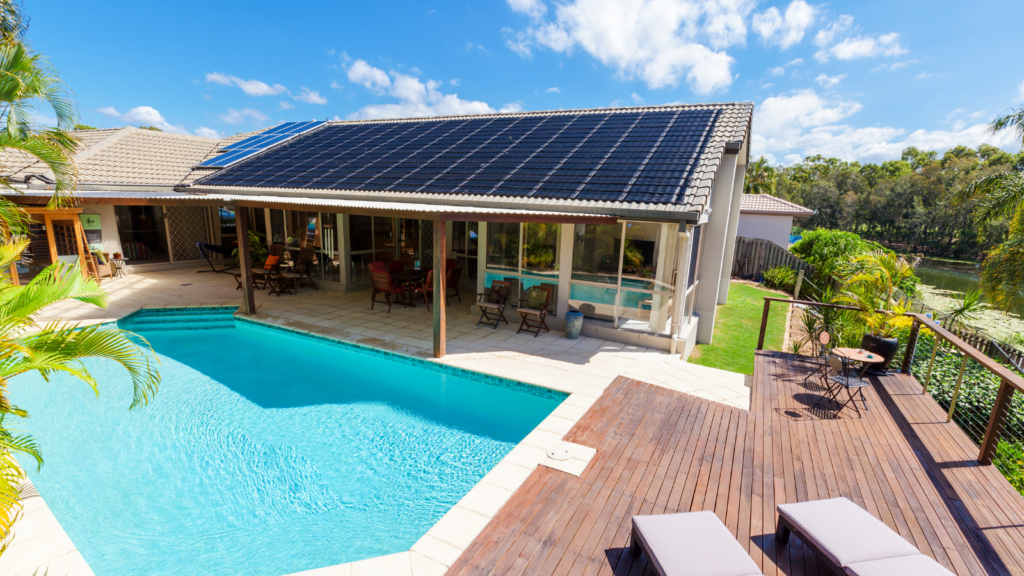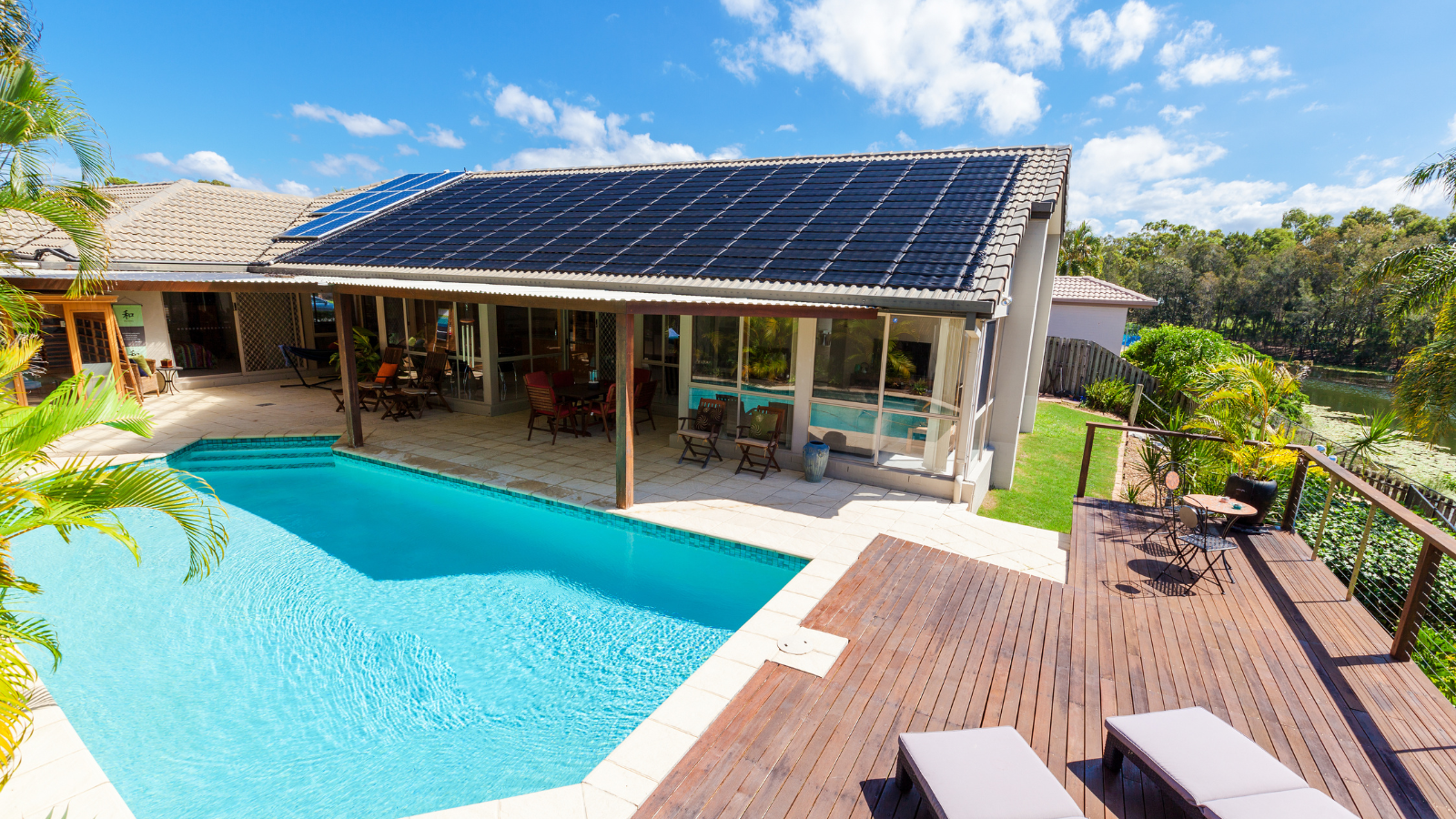Pros and Cons of Solar Pool Heaters
Pool owners looking to get the most out of their splash zone may be curious about how to heat their pools efficiently in colder months. If that sounds like you, you’ll want to understand the pros and cons of solar pool heaters.
These advanced designs can offer comfortable swimming temperatures year-round. However, learning how these systems work and how they compare to other heating solutions can help you make the right purchase. Today, we’ll cover how these sun-powered systems operate and address the advantages and disadvantages to keep in mind as you weigh your options.
What is a solar pool heater?
A solar pool heater is a great way to warm your water in cooler months without sending your electric bills through the roof. Here are the basics:
How do solar pool heaters work?
Solar heaters pump pool water through a filter and then through a thermal collector or mat that stores energy from the sun and heats the water before returning it to your pool. They’re an efficient way to ensure your in-ground or above-ground pool is comfortable year-round.
How much do solar pool heaters cost?
The up-front cost of a solar pool heater can range from $1,500 to $8,000. These systems often utilize solar panels installed on a rooftop to capture as much energy as possible.
Where can you find solar pool heaters?
You can find solar pool heating systems for sale at pool supply stores and dedicated solar retailers. You may be able to order a kit that meets your needs or have a bespoke design crafted to your unique specifications.
Pros of installing a solar pool heater

Solar pool heaters offer plenty of benefits. Here are some of the best reasons to invest in one of these systems:
Solar energy is free!
Traditional electric heat pumps can cause your utility bills to skyrocket as they attempt to maintain your ideal water temperature, but solar heaters rely on glorious free sunshine.
Environmentally friendly
Since solar pool heaters use your existing pump to push water through the passive thermal cells, these systems don’t require any additional energy to operate. This is great news for the planet and your wallet!
Cost-effective
After the price of your initial purchase and installation, you shouldn’t have any other regular fees associated with your solar heating system. In fact, they’re downright cheap to operate, especially when compared to traditional heat pumps.
Low maintenance
Due to the simplistic nature of these designs, solar pool heaters require very little upkeep. Of course, properly maintaining your pump and filter will ensure water flows smoothly. Otherwise, occasional inspections and cleanings are all you need to keep your system happy and healthy in the long run.
Long lifespan
A high-quality solar heating setup can—and should—last for decades. In many cases, you can anticipate at least 25 to 30 years of operation.
Cons of solar pool heaters
For all the alluring benefits of solar pool heaters, these systems do pose some disadvantages worth considering. Here are a few drawbacks of these modern devices:
Dependent on the weather
Solar heaters are weather-dependent, meaning you may not enjoy optimal function if it’s stormy or overcast outside. As with traditional electric heat pumps, you’ll get warmer water later in the day after the sun has been shining for a while. You shouldn’t expect to indulge in a nice toasty swim first thing in the morning.
Time it takes to heat
Depending on the size of your pool, it may take several days of consistent heating to raise the water temperature by 10 degrees to 15 degrees Fahrenheit. That said, many folks in Florida don’t need extreme temperature changes to enjoy their swimming pools year-round. If your roof gets plenty of sunshine, you’ll be floating in comfort before you know it.
Initial costs of purchase and installation
On average, most folks pay around $5,000 for their solar pool heater, including installation. However, your costs may be higher or lower depending on the size of your pool, how many panels you need, and the exact system you choose.
Space requirements
While some folks can easily install solar panels on their roofs and forget about them, other people may not have that option. You can also place these energy collection packs on your deck near the pool, but they might get in the way of your backyard lifestyle.
Of course, you’ll also need to account for the hose or pipe that sends your pool water to and from the panels. If you have limited space, you might find that a compact electric heat pump is a better option.
Keep your pool crystal clear with GPS Pools!
GPS Pools can help you enjoy your swimming pool all year long! We offer the supplies and services you need to make the most of your pool, no matter the season.
Contact us today to learn more!

